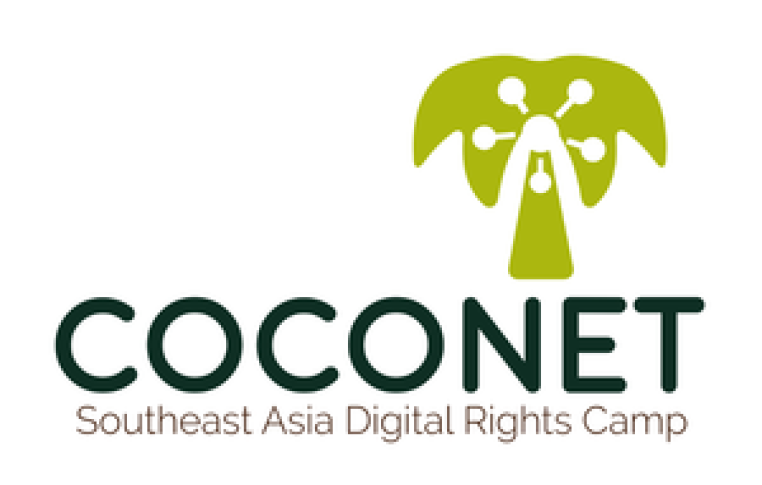
A few kilometres away from the city of Yogyakarta, Indonesia, the COCONET Southeast Asia Digital Rights Camp was held between 22 and 26 October 2017. The camp was hosted by EngageMedia, APC and the Southeast Asian Press Alliance (SEAPA), along with key regional allies including SafeNet (Indonesia), EMPOWER (Malaysia), Thai Netizen Network, Witness, Myanmar ICT for Development Organization and the Cambodia Center for Human Rights.
The over 110 participants in the camp came from varied backgrounds including journalists, human rights campaigners, women’s rights activists and digital security trainers. There were also documentary filmmakers, writers, social media activists, and even artists. The vibrant group had a lot to share, communicate and exchange over the period of five days. The camp was structured in a loose manner, with the participants creating and executing the agenda.
Among the 88 sessions held across the five days, I found several of the topics covered deeply interesting. These included video distribution, digital security tips, understanding our laws, sex and the internet, and even surveillance. It was of great interest for me to hear about the socio-political climate in Southeast Asian countries that don’t often make it to the news in India. There is particularly a lot to learn from them as our countries have a lot in common and our governments themselves seem to be learning from each other.
Since many of the participants shaped and created sessions, there was a lot to learn about new methodologies being used to convey complex concepts in simple ways. Cathy from APC conducted a session on imagining the future 10, 50 and 100 years from now. She brought together a pair of opposing ideas – like democracy and autocracy, or scientific and religious – and mapped them on a graph. The groups of participants were then asked to map the worlds like democracy and religious, democracy and scientific, autocracy and religious and autocracy and scientific. The exercise and the presentation that followed helped the group articulate that extreme ideas without any moderation were impossible to imagine – like if the world was entirely scientific and there was no place in it for religious worship or religious texts. The methodology used also enabled many of us from across countries to relate to each other’s current contexts and briefly get a peek into another form of our worlds.
Another session between participants from several countries (Myanmar, India, Philippines and Pakistan) where we discussed our existing digital rights and freedom of expression legislations was fascinating. This conversation helped us understand how different activists used different methods to push for policy change in our countries and how we can share our learnings from advocating for change. For example, participants from Myanmar felt like there is a lot to learn from India and its resistance to Section 66A of the Information Technology Act, since their own attempt at resistance was met with the opposite response of the Indian courts. These discussions enriched our own understanding and helped each of us articulate the need to further communicate in the region on our ongoing work.
In the main plenary held each morning of the five days, I found different methods being used to have engaging discussions in a group as large as ours, such as the spectogram, a debate, and even smaller group discussions. These group discussions set the larger agenda of the training as well as painted the broader hues for the movement, such as questioning the shrinking democratic spaces, pondering on the corporate platforms we use for activism, and understanding better the pros and cons of the digital rights movement. These helped us prepare for the challenges we face across the countries as a whole group.
However, since the agenda was decided together in a democratic manner with the structure loosely maintained, I did wish for a few more pre-planned sessions like the plenaries.
My biggest take-away from the event has been the pertinent need for us South Asians and Southeast Asians to communicate amongst ourselves better. There is a wealth of knowledge and experience in the room and understanding and learning from each other helps us strategise better solutions and achieve the goals of social justice that we all want.